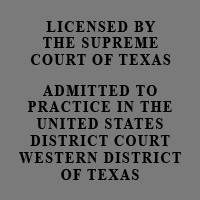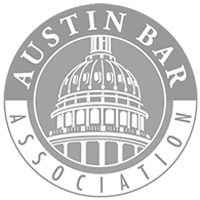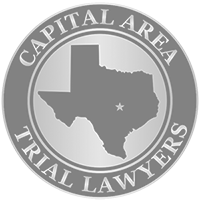Investment Fraud Lawyer Handles Investment Fraud Bounty Actions and Investment Fraud Lawsuits Against Fraudulent Brokers, Investment Advisors, Fund Managers, and Investment Companies by Investment Fraud Lawyer Jason S. Coomer
Investment fraud including retirement plan fraud, majority shareholder fraud, real estate fraud, and stock manipulation fraud cost investors, shareholders, and businesses Billions of Dollars each year. Retirement fund fraud lawsuits, minority shareholder lawsuits, shareholder suppression lawsuits, and other business misrepresentation and fraud lawsuits allow investors and shareholders to seek back large sums of money that have been wrongfully taken from them.
If you have a question about a retirement fund fraud lawsuit, minority shareholder lawsuit, shareholder suppression lawsuit, stock manipulation fraud lawsuit, or other investment fraud lawsuit, feel free to send an e-mail to Texas Investment Fraud Lawyer Jason Coomer. He handles Retirement Plan Fraud Lawsuits, Shareholder Investment Fraud Lawsuits, and other Business Investment Fraud Lawsuits.
Retirement Fund Fraud Lawyer, Minority Shareholder Investment Fraud Lawsuit, Broker Fraud Lawyer, Shareholder Suppression Lawyer, Investment Accounting Fraud Lawyer, and Stock Fraud Lawyer
In reviewing investment fraud lawsuits, accounting fraud lawsuits, broker fraud lawsuits, retirement fraud lawsuits, and misrepresentation lawsuits, it is important to realize that more is needed than just a bad result. The investment adviser, broker, retirement fund manager, or business partners have to do something wrong including misrepresenting an investment, failing to follow an investor’s written instructions, having a conflict of interest contrary to the investor, insider trading, failing to identify an obvious fraudulent investment, and/or breaching a fiduciary duty.
When investing large amounts of money including retirement funds, an investor should always be informed about an investments risks. Every investment has risks as markets and investments can fluctuate. The majority of investment losses result from such fluctuations rather than from fraud or misconduct. However, investment fraud does happen, and you should understand common forms of investment fraud. Some of the most common forms of investment fraud and securities fraud are listed below:
- False or misleading information on a company’s financial statement;
- False or misleading information on Securities and Exchange Commission (SEC) filings;
- Lying to corporate auditors;
- Insider trading;
- Stock manipulation schemes;
- Embezzlement by stockbrokers;
- Manipulation of a security’s price or volume;
- Fraudulent or unregistered offer or sale of securities, including Ponzi schemes, high yield investment programs or other investment programs;
- Brokerage Account and Retirement Account Fraud;
- False or misleading statements about a company;
- Failure to file required reports with the SEC;
- Abusive naked short selling;
- Theft or misappropriation of funds or securities;
- Fraudulent conduct or other problems associated with municipal securities transactions or public pension plans; and
- Bribery of foreign officials
- Churning
- Excessive Trading
- Unsuitable Investments
- Misrepresentation
- Purchase of Unsuitable Securities
- Investing in Variable Annuities/Variable Universal Life Policies
- Risky or negligent Retirement Planning
- Unauthorized Trading
- Failure to Advise of Risky Investments
- Unauthorized Risk Profile Changes
- Illegal Bribes
- Illegal Kickbacks
- False Accounting Statements
Through new legislation the federal government is offering financial incentives to securities fraud whistleblowers, investment fraud whistleblowers, and other financial fraud whistleblowers to step up and blow the whistle on financial fraud including the above listed forms of securities fraud and investment fraud that lead to SEC violations and fines. These new whistleblower bounties can be collected by whistleblowers that properly report SEC violations, financial fraud, securities fraud, commodities fraud, and stimulus fraud.
Other forms of SEC Violations including reporting problems with a brokerage or advisory account; fraudulently preventing access to funds or securities; fraudulent order handling, trade execution, or confirmations; fraudulent fees, mark-ups or commissions; and inaccurate or misleading disclosures by financial professionals, may also lead to potential SEC bounties, if the fraudulent acts result in fines of over $1 million and are properly reported.
As such, if you are the victim of significant investment fraud, there may be several potential causes of action that could be used to obtain a recovery. For more information on Investment Fraud Law Suits, please go to the following web page on Broker Fraud, Broker Negligence, Misrepresentation Lawsuits, Securities Exchange Act and SEC Whistleblower Bounty Actions and Commodity Exchange Act and CFTC Whisteblower Bounty Actions.
Shareholder Investment Fraud Lawyer, Minority Shareholder Investment Fraud Lawyer, Accredited Investor Investment Fraud Lawyer, Shareholder Suppression Lawyer, and Business Misrepresentation Lawyer
Since the 1980s, the deregulation of investment markets and decreased SEC enforcement, have come large investor fraud schemes that have fraudulently taken Billions of dollars from consumer and business investors. Many businesses have set up elaborate investment scams that have taken advantage of high end investors, accredited investors, business investors, and individual investors.
During this era of deregulation many safe guards were removed, but even more rules and safe guards were not adhered to when these fraudulent businesses lured investors into fraudulent and risky investments. Understanding SEC rules on what should have been disclosed during investment negotiations as well as who may be a potential defendant for failing to properly disclose necessary information or intentionally misleading investors about an investment are crucial in determining if a shareholder or investor has a viable shareholder investment fraud lawsuit, minority shareholder lawsuit, shareholder suppression lawsuit, or other business misrepresentation and fraud lawsuit.
Unfortunately, majority shareholders sometimes wrongfully and fraudulently use their controlling interest in a company for their own benefit at the expense of minority shareholders. When a majority shareholder uses corporate malfeasance and breach of fiduciary duties, the minority shareholder may have a viable shareholder suppression lawsuit against the majority shareholders.
In any Shareholder Suppression Lawsuit, Corporate Malfeasance Lawsuit, or Breach of Fiduciary Duty Lawsuit, it is important to understand the rights, fiduciary duties, and responsibilities of the majority shareholders, board of directors, managing partners, corporate officers, corporate counsel, chief financial officers, and managers. It is also important to obtain as much evidence of the malfeasance, self dealing, fraud against shareholders, wrongful suppression, embezzlement, or other bad acts as possible prior to the start of litigation. In many of these cases, once litigation has begun, obtaining evidence of the unlawful and bad acts are difficult and heated battles as many documents begin to disappear and proving spoliation becomes a key issue. The term spoliation broadly refers to the intentional, reckless, or negligent destruction, loss, material alteration or obstruction of evidence that is relevant to litigation.
Further, in determining who is a viable defendant for a potential shareholder investment fraud lawsuit, minority shareholder lawsuit, shareholder suppression lawsuit, or other business misrepresentation and fraud lawsuit, it is important to understand the fiduciary duties owed by corporate officers, the board of directors, investment firms, brokers, financial planners, real estate professionals, lawyers, and other business professionals. Understanding these duties can often help determine if there is a viable party to seek compensation from after a large investment was lost or stolen. For more information on this topic, please feel free to go to the following webpage on Shareholder Investment Fraud Lawsuits, Minority Shareholder Investment Fraud Lawsuits, Accredited Investor Investment Fraud Lawsuits, Shareholder Suppression Lawsuits, and Business Misrepresentation Lawsuits.
Stock Manipulation Scheme Lawyer, Corporate Accounting Fraud Lawyer, Fraudulent Accounting Lawyer, False Accounting Statement Lawyer, SEC Whistleblower Incentive Program Lawyer, and SEC Bounty Action Lawyer
Stock manipulations schemes, false accounting statements, and other types of corporate accounting fraud cost pension funds and investors hundreds of Billions of dollars. These fraudulent business practices are the target of new SEC Bounty Action laws and rules that encourage whistleblowers to anonymously step up and blow the whistle through a Bounty Action Lawyer on illegal stock manipulation schemes, false accounting, accounting fraud, Ponzi schemes, and other SEC violations. By working with a stock manipulation bounty action lawyer to expose stock manipulation schemes, false misleading information on a company’s financial statements, false information on Securities and Exchange Commission (SEC) filings, insider trading; embezzlement by stockbrokers; and other securities fraud, a SEC whistleblower can receive a large financial reward.
Stock manipulation schemes and corporate accounting fraud have become increasingly common as executives of large corporations have found it extremely profitable to defraud shareholders through account fraud. Several large corporations have been caught overstating profits and concealing debt for the purpose of manipulating stock prices. These fraudulent accounting stock manipulation schemes are an example of corporate account fraud that the SEC is attempting to identify and prevent through new SEC Bounty Action Whistleblower laws. By working with financial fraud whistleblower lawyers and securities fraud whistleblower lawyers to expose false misleading information on a company’s financial statements, false information on Securities and Exchange Commission (SEC) filings, insider trading; stock manipulation schemes; embezzlement by stockbrokers; and other securities fraud, a SEC Bounty Action Whistleblower can become eligible for large financial rewards.
For more information on Investment Fraud Law Suits, please go to the following web page on Stock Manipulation Scheme Lawsuit and Corporate Accounting Fraud Lawsuit Information, Oil Company Accounting Fraud Lawsuit and Energy Company Fraud Lawsuit Information, Securities Exchange Commission SEC Whistleblower Bounty Lawsuit Information and Commodity Futures Trade Commission Whistleblower Lawsuit Information.
Tax Fraud Whistleblower Reward Lawyer, IRS Tax Fraud Whistleblower Award Lawyer, Corporate Tax Fraud Lawyer, Taxpayer Fraud Whistleblower Lawyer, IRS Whistleblower Reward Lawyer, Federal Whistleblower Reward Lawyer and IRS Whistleblower Payment for Detection of Fraud Lawyer
Stock manipulation schemes and investment fraud schemes can often lead to significant underreporting of corporate taxes. Included in these fraudulent schemes are transfer pricing schemes that involve the overpricing of imports and/or the underpricing of exports between related companies in different countries for the purpose of transferring profits or revenue out of the United States in order to evade taxes. The profits and revenue end up in a country that has a lower corporate tax rate than the US. These fraudulent pricing schemes can be used both for stock manipulation and corporate tax fraud. For more information on Corporate Tax Fraud Whistleblower Actions, please go to the following: Tax Fraud Whistleblower Reward Lawsuit, IRS Tax Fraud Whistleblower Award Lawsuit, and Corporate Tax Fraud Lawsuit Information web page.
Accredited Investor Fraud Lawsuits, Federal Investment Fraud Lawsuits, Texas Investment Fraud Lawsuits, Shareholder Investor Lawsuits, and Business Misrepresentation Lawsuits
Accredited Investors are commonly the targets of investment fraud schemes. This is because under the Securities Act of 1933, a company that offers or sells its securities must register the securities with the SEC or find an exemption from the registration requirements. The Act provides companies with a number of exemptions. For some of the exemptions, such as rules 505 and 506 of Regulation D, a company may sell its securities to what are known as “accredited investors.”
The federal securities laws define the term accredited investor in Rule 501 of Regulation D as:
- a bank, insurance company, registered investment company, business development company, or small business investment company;
- an employee benefit plan, within the meaning of the Employee Retirement Income Security Act, if a bank, insurance company, or registered investment adviser makes the investment decisions, or if the plan has total assets in excess of $5 million;
- a charitable organization, corporation, or partnership with assets exceeding $5 million;
- a director, executive officer, or general partner of the company selling the securities;
- a business in which all the equity owners are accredited investors;
- a natural person who has individual net worth, or joint net worth with the person’s spouse, that exceeds $1 million at the time of the purchase;
- a natural person with income exceeding $200,000 in each of the two most recent years or joint income with a spouse exceeding $300,000 for those years and a reasonable expectation of the same income level in the current year; or
- a trust with assets in excess of $5 million, not formed to acquire the securities offered, whose purchases a sophisticated person makes.
By targeting Accredited Investors, some companies and their lawyers are able to exempt themselves from disclosure rules. When investing as an accredited investor, it is often a good idea to have an attorney assist you prior to making a substantial investment. Additionally, if you have already made a substantial investment and suspect foul play, it is important to make sure that you are aware of your rights and how to seek information on your investment.
Texas Real Estate Fraud Lawyers, California Real Estate Fraud Lawyers, and Real Estate Fraud Lawyers Throughout the United States
In working with other Real Estate Fraud Lawyers, Jason Coomer has worked hard in handling large real estate fraud cases where tens of millions of dollars are at stake and investors need a legal team to seek justice. These teams represent real estate investors that have been lured into bad investments through misrepresentations about the actual value or condition of investment property. In some situations, real estate developers have used fraudulent appraisals and misrepresentations to fool investors out of millions or tens of millions of dollars. In many instances, the normal safe guards and checks on real estate deals including mortgage companies, escrow agents, title companies, and real estate agents do not work because they are mere agents of the fraudulent sellers or fail to do their due diligence to obtain a short term sale and collect a commission. In these situations, it is important to have a real estate fraud lawyer review your claim and if necessary file a real estate fraud lawsuit.
Austin Texas Real Estate Fraud Lawyer Jason Coomer commonly works with other Texas Real Estate Investment Fraud Lawyers and California Real Estate Investment Fraud Lawyers on large real estate fraud claims through out Texas and the United States on large real estate fraud lawsuits. These litigation teams often file suits against several parties to seek justice.
Retirement Fund Fraud Lawyer, Minority Shareholder Investment Fraud Lawyer, Broker Fraud Lawyer, Shareholder Suppression Lawyer, Investment Accounting Fraud Lawyer, SEC Violation Fraud Lawyer, Real Estate Investment Fraud Lawyer, Stock Fraud Lawyer, Accredited Investor Investment Fraud Lawyer, Business Fraud Litigation Lawyer, and Investment Fraud Litigation Teams
Texas Shareholder Fraud Lawyer, Retirement Fund Fraud Lawyer, Real Estate Investment Fraud Lawyer, and Investment Fraud Lawyer Jason Coomer frequently works with other Shareholder and Investment Fraud Lawyers across Texas and the United States including California Investment Fraud Lawyers, Houston Shareholder Fraud Lawyers, Dallas Retirement Account Fraud Lawyers, San Antonio Retirement Fund Investment Fraud Lawyers, and Delaware Corporation Retirement Fund Fraud Lawyers to provide high end professional legal services. He understands that many businesses have locations throughout Texas and the United States and may require good shareholder business litigation lawyers and investment fraud lawyers in different locations throughout the United States to properly handle large investment fraud cases.
Texas Investment Fraud lawyer, Jason S. Coomer, is an experienced and aggressive commercial fraud litigation attorney that helps investors and business owners protect and reclaim their assets from businesses and individuals that have committed fraud, negligent misrepresentation, deceptive business acts, unfair corporate competition, and other wrongful actions to steal money. He works with individuals and businesses that have suffered significant damages from these wrongful acts to obtain evidence of the fraud, negligence, or other business tort; calculate the damages that have been suffered and determine what can be sought under the law from the wrongdoers; and prosecutes business tort claims through the court system and arbitration to obtain compensation for damages that were suffered.
If you have a question about a retirement fund fraud lawsuit, minority shareholder lawsuit, shareholder suppression lawsuit, stock manipulation fraud lawsuit, or other investment fraud lawsuit, feel free to submit an inquiry or send an e-mail to Texas Investment Fraud Lawyer Jason Coomer. He handles Retirement Plan Fraud Lawsuits, Shareholder Investment Fraud Lawsuits, Real Estate Investment Fraud Lawsuits, Business Investment Fraud Lawsuits, Shareholder Suppression Lawsuit, Minority Shareholder Lawsuits, Accredited Investor Lawsuits, Business Fraud Lawsuits, Breach of Contract Lawsuits, Breach of Fiduciary Duty Lawsuits, and other business litigation dispute.
Feel Free to Contact Us with any Questions
Associations




